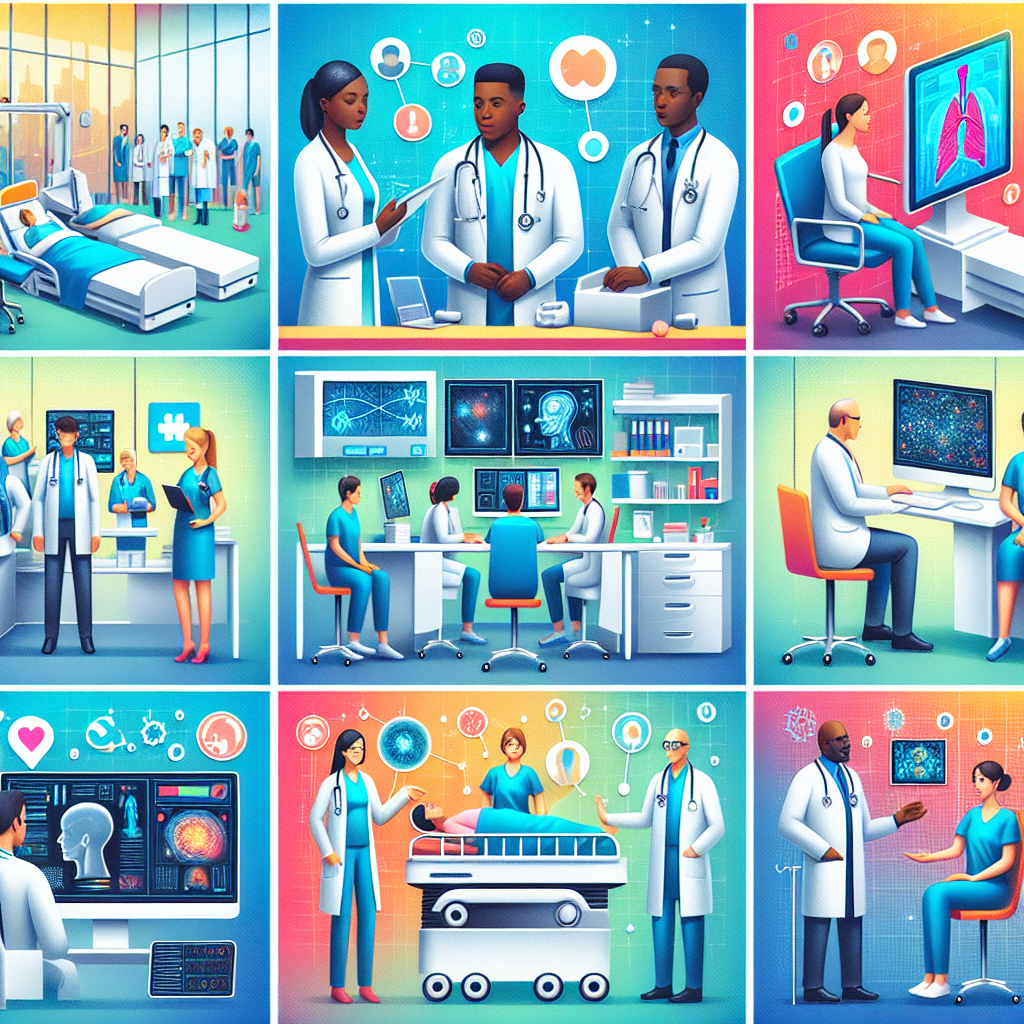The Role of AI Platforms in Healthcare
In recent years, artificial intelligence (AI) has emerged as a powerful tool in healthcare, revolutionizing the way medical professionals diagnose, treat, and manage patients. AI platforms are being used to improve patient outcomes, streamline administrative tasks, and enhance the overall quality of care. In this article, we will explore the role of AI platforms in healthcare and how they are shaping the future of medicine.
What are AI Platforms in Healthcare?
AI platforms in healthcare are software systems that use machine learning algorithms to analyze medical data and provide insights to healthcare providers. These platforms can process large amounts of data quickly and accurately, enabling doctors to make more informed decisions about patient care. AI platforms can perform a wide range of tasks, including diagnosing diseases, predicting patient outcomes, and personalizing treatment plans.
How are AI Platforms Used in Healthcare?
AI platforms are being used in a variety of ways in healthcare, including:
1. Diagnosing Diseases: AI platforms can analyze medical images, such as X-rays and MRIs, to detect signs of disease or injury. These platforms can identify patterns and abnormalities that may be difficult for human radiologists to detect, leading to earlier and more accurate diagnoses.
2. Personalizing Treatment Plans: AI platforms can analyze patient data, such as genetic information and medical history, to create personalized treatment plans. By considering individual patient characteristics, AI platforms can recommend the most effective treatments and medications for each patient.
3. Predicting Patient Outcomes: AI platforms can analyze patient data to predict the likelihood of certain outcomes, such as hospital readmissions or complications. By identifying high-risk patients, healthcare providers can intervene early to prevent adverse events and improve patient outcomes.
4. Streamlining Administrative Tasks: AI platforms can automate administrative tasks, such as scheduling appointments, billing, and coding. By reducing the burden of paperwork on healthcare providers, AI platforms free up time for patient care and improve efficiency in healthcare settings.
What are the Benefits of AI Platforms in Healthcare?
There are several benefits of using AI platforms in healthcare, including:
1. Improved Accuracy: AI platforms can analyze large amounts of data quickly and accurately, leading to more accurate diagnoses and treatment plans. By reducing human error, AI platforms can improve patient outcomes and reduce healthcare costs.
2. Personalized Care: AI platforms can analyze individual patient data to create personalized treatment plans that are tailored to each patient’s unique characteristics. By considering factors such as genetics, lifestyle, and medical history, AI platforms can recommend the most effective treatments for each patient.
3. Enhanced Efficiency: AI platforms can automate repetitive tasks, such as paperwork and administrative duties, allowing healthcare providers to focus on patient care. By streamlining processes and reducing the burden of paperwork, AI platforms can improve efficiency in healthcare settings.
4. Cost Savings: By improving accuracy, efficiency, and patient outcomes, AI platforms can help reduce healthcare costs. By preventing unnecessary tests and treatments, AI platforms can save money for both patients and healthcare providers.
What are the Challenges of Using AI Platforms in Healthcare?
While AI platforms offer many benefits, there are also several challenges associated with their use in healthcare, including:
1. Data Privacy and Security: AI platforms require access to large amounts of sensitive patient data, raising concerns about privacy and security. Healthcare providers must ensure that patient data is protected and comply with regulations, such as the Health Insurance Portability and Accountability Act (HIPAA).
2. Integration with Existing Systems: AI platforms must be integrated with existing healthcare systems, such as electronic health records (EHRs), to be effective. This can be a complex and time-consuming process, requiring collaboration between IT departments and healthcare providers.
3. Training and Education: Healthcare providers must be trained to use AI platforms effectively and interpret the insights they provide. This requires ongoing education and support to ensure that healthcare professionals are comfortable using AI tools in their practice.
4. Ethical Concerns: AI platforms raise ethical concerns, such as bias in algorithms and the potential for AI to replace human judgment. Healthcare providers must address these concerns and ensure that AI is used ethically and responsibly in patient care.
FAQs
Q: Can AI platforms replace human doctors?
A: While AI platforms can assist healthcare providers in diagnosing diseases and creating treatment plans, they cannot replace human doctors. AI platforms are tools that augment the skills and expertise of healthcare professionals, helping them make more informed decisions about patient care.
Q: How are AI platforms trained to analyze medical data?
A: AI platforms are trained using machine learning algorithms that analyze large amounts of medical data, such as images, lab results, and patient records. By learning from this data, AI platforms can identify patterns and make predictions about patient outcomes.
Q: Are AI platforms secure and compliant with regulations?
A: Healthcare providers must ensure that AI platforms are secure and compliant with regulations, such as HIPAA, to protect patient data. AI platforms should encrypt data, restrict access to authorized users, and comply with privacy regulations to ensure patient confidentiality.
Q: How can healthcare providers integrate AI platforms into their practice?
A: Healthcare providers can integrate AI platforms into their practice by working with IT departments to ensure compatibility with existing systems, such as EHRs. Training and education programs can help healthcare professionals learn how to use AI platforms effectively in patient care.
In conclusion, AI platforms are transforming healthcare by improving accuracy, efficiency, and patient outcomes. While there are challenges to overcome, such as data privacy and ethical concerns, the benefits of using AI platforms in healthcare are clear. By harnessing the power of AI, healthcare providers can deliver personalized, high-quality care to patients and shape the future of medicine.

